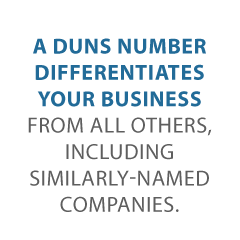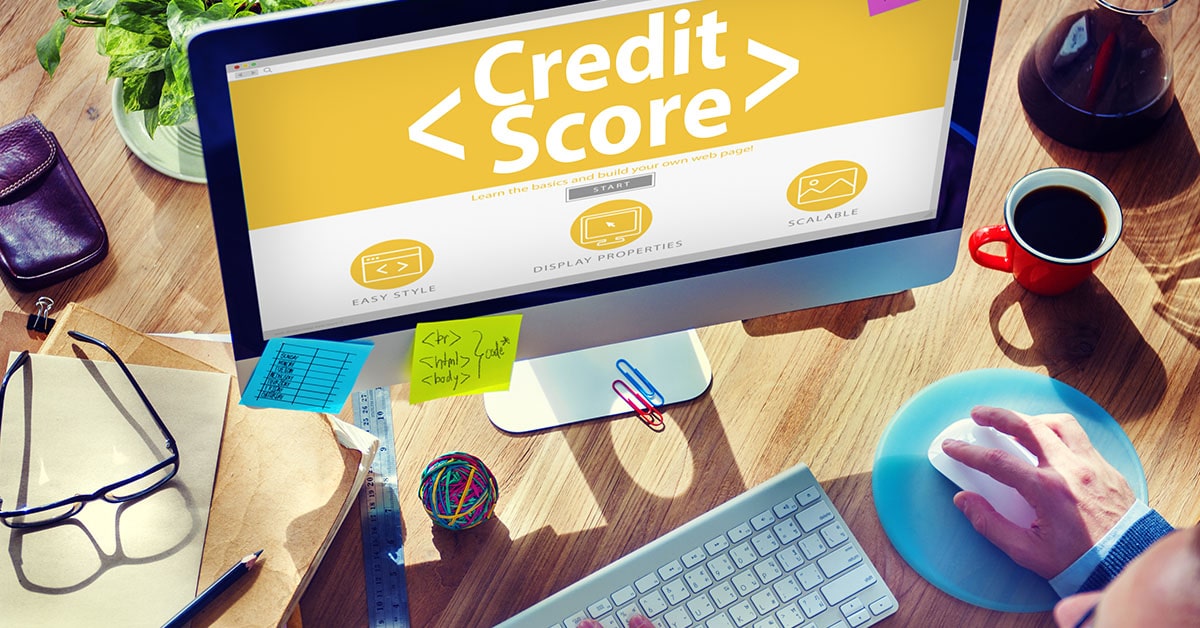Is Business Credit Different From Personal Credit?
You better believe it. And we can tell you the way is business credit different from personal credit.
We know how is business credit different from personal credit. We show you why the two need to be separate and how to best accomplish that.
When you look at the difference between your company credit score and consumer credit score, remember that any inquiries into your consumer credit score are going to detrimentally influence that score.
And a number of merchants and lenders will conduct inquiries when they are doing business with you for the very first time. You do not want their inquiries to influence your personal credit.
Here are the best ways to ensure your business credit doesn’t report on your consumer credit reports and keep your company credit separate from your personal credit.
How Can You Make Business Credit Different From Personal Credit? Get a D&B DUNS number
You can’t get into Dun & Bradstreet’s system without one, and they are free, anyway. A DUNS number differentiates your business from all others, including similarly-named companies. Dun & Bradstreet has a prerequisite that you register your business on their website before they will generate a DUNS number.
Please note: there are a few slightly different ways of getting a D-U-N-S if your business is in a specific class. These include if your company is an American government contractor or grantee, or your company is in Canada, or you are doing work as an Apple developer.
How Can You Make Business Credit Different From Personal Credit? File a DBA
If you operate your business as a sole proprietor at least file for DBA (‘ doing business as’) status. If you do not, then your actual name will end up the same as your business name. As a result, you can still end up being personally liable for all your business financial obligations.
But never look at a DBA filing as being anything more than a steppingstone to incorporation,
How Can You Make Business Credit Different From Personal Credit? Go Past a DBA and Establish your Small Business as a Specific Legal Entity via Incorporating
Meet with your tax expert or financial planner in order to select which legal entity (sole proprietor, LLC or S-Corp) will ideally fit your small business and specific financial situation.
Incorporation can also help to safeguard your personal assets in the event of a law suit. Once your corporation or LLC is registered on your state’s Secretary of State’s website, you can then get a Business Federal Tax ID Number, so you can open your business’s bank account.
How Can You Make Business Credit Different From Personal Credit? Get an EIN
The IRS makes it easy to accomplish this. You can apply on the internet once you determine your eligibility.
- Is your principal business found in the USA or in USA Territories?
- Does the man or woman who is applying have a valid Taxpayer Identification Number (SSN [Social Security Number], EIN, or ITIN [Individual Taxpayer Identification Number]?
If this is so, then you can move forward.
https://creditsuite.wistia.com/medias/x7ls7b9r9y?embedType=async&videoFoam=true&videoWidth=640
How Can You Make Business Credit Different From Personal Credit? Build Business Credit!
Business credit is an asset which can help your corporation for many years to come.
The Process
Building corporate credit is a process, and it does not occur automatically. A business must actively work to develop business credit. Having said that, it can be done easily and quickly, and it is much swifter than developing individual credit scores. Vendors are a big part of this process.
Carrying out the steps out of order will result in repetitive denials. Nobody can start at the top with company credit.
Business Fundability™
A company needs to be Fundable to lending institutions and vendors. For that reason, a small business will need a professional-looking web site and e-mail address, with site hosting from a vendor such as GoDaddy. In addition business telephone numbers ought to have a listing on ListYourself.net.
Also the business telephone number should be toll-free (800 exchange or similar).
A corporation will also need a bank account devoted purely to it, and it has to have all of the licenses necessary for running. These licenses all must be in the specific, appropriate name of the company, with the same company address and telephone numbers. Bear in mind that this means not just state licenses, but potentially also city licenses.
Dealing with the Internal Revenue Service
Visit the IRS web site and get an EIN for the small business. They’re free. Pick a business entity such as corporation, LLC, etc. A company can get started as a sole proprietor but will should change to a variety of corporation to decrease risk and optimize tax benefits.
A business entity will matter when it involves taxes and liability in case of a lawsuit. A sole proprietorship means the business owner is it when it comes to liability and taxes. No one else is responsible.
Beginning the Business Credit Reporting Process
Begin at the D&B website and get a free DUNS number. A DUNS number is how D&B gets a corporation into their system, to produce a PAYDEX score. If there is no DUNS number, then there is no record and no PAYDEX score.
Once in D&B’s system, search Equifax and Experian’s websites for the corporation. You can do this at https://www.creditsuite.com/reports/. If there is a record with them, check it for accuracy and completeness. If there are no records with them, go to the next step in the process. In this way, Experian and Equifax will have something to report on.
Trade Lines
First you ought to build trade lines that report. This is also referred to as vendor accounts. Then you’ll have an established credit profile, and you’ll get a business credit score.
And with an established business credit profile and score you can begin getting more credit.
These varieties of accounts have the tendency to be for the things bought all the time, like outdoor work wear, ink and toner, and office furniture.
But to start with, what is trade credit? These trade lines are credit issuers who will give you starter credit when you have none now. Terms are in most cases Net 30, instead of revolving.
So if you get approval for $1,000 in vendor credit and use all of it, you must pay that money back in a set term, like within 30 days on a Net 30 account.
Details
Net 30 accounts have to be paid in full within 30 days. 60 accounts have to be paid fully within 60 days. Compared to with revolving accounts, you have a set time when you have to pay back what you borrowed or the credit you made use of.
To kick off your business credit profile the proper way, get approval for vendor accounts that report to the business credit reporting agencies. Once that’s done, you can then use the credit.
Then pay back what you used, and the account is on report to Dun & Bradstreet, Experian, or Equifax.
Not every vendor can help in the same way true starter credit can. These are merchants that will grant an approval with hardly any effort. You also need them to be reporting to one or more of the big three CRAs: Dun & Bradstreet, Equifax, and Experian.
Monitor Your Business Credit
Know what is happening with your credit. Make certain it is being reported and address any inaccuracies as soon as possible. Get in the practice of checking credit reports. Dig into the particulars, not just the scores.
We can help you monitor business credit at Experian, Equifax, and D&B for a lot less than it would cost at the CRAs. Update the data if there are inaccuracies or the data is incomplete.
Challenging Inaccuracies
So, what’s all this monitoring for? It’s to contest any problems in your records. Mistakes in your credit report(s) can be fixed.
Disputing credit report errors generally means you precisely detail any charges you challenge.
A Word about Business Credit Building
Always use credit sensibly! Never borrow beyond what you can pay back. Keep track of balances and deadlines for payments. Paying in a timely manner and in full will do more to raise business credit scores than nearly anything else.
Establishing small business credit pays off. Good business credit scores help a company get loans. Your lending institution knows the corporation can pay its debts. They recognize the small business is for real. The company’s EIN connects to high scores, and lenders won’t feel the need to demand a personal guarantee.
How Can You Make Business Credit Different From Personal Credit? Open Business Checking and Savings Accounts
Have a discussion with your local financial institution about obtaining business checking and other accounts. If you have been a reliable client on the personal side of things, and you can show your business is paying off its bills promptly, then your financial institution is going to be a lot happier lending to your company..
How Can You Make Business Credit Different From Personal Credit? Apply for Appropriate Invoices through Your Company
These are really any bills which are the direct responsibility of your company (or, at the very least, they should be). These include everything from Wi-Fi in your company’s name to the lease or a mortgage for your office.
Your small business could pay a cellular phone provider or maybe the fuel oil or gas invoice, if that is appropriate. Your business will notice credit scores climb as you pay the statements promptly.
We Can Show You How to Make Business Credit Different From Personal Credit
Improve the professionalism of your business and keep your individual and business credit separated. Learn more here and get started toward how to make business credit different from personal credit.

